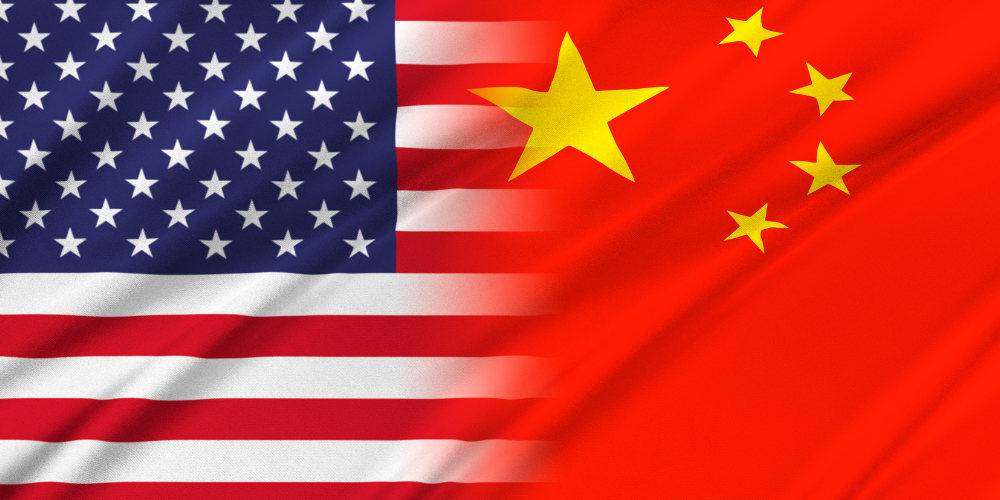Breaking: Temu Ends Direct China-to-US Sales: What This Means for Online Shoppers

Anúncios
📦 Shifting from China-to-US Shipping
Temu is making a big change in the way it serves American shoppers.
Until recently, the online marketplace allowed buyers in the US to order goods straight from China.
Now, Temu has moved to a model where US-based sellers handle all sales, with products shipped from within the United States 🇺🇸.
This transition follows the closure of the duty-free rule that made it easy for platforms like Temu to offer low prices by shipping cheaply from overseas.
Anúncios

🛍️ How the New Model Works
With this new approach, Temu is actively recruiting American companies to sell on its platform.
Orders are no longer sent across oceans from foreign warehouses. Instead, local merchants stock and ship products directly to US customers 📬.
Anúncios
The company says this move will help local sellers reach new markets and grow their businesses.
🤝 What It Means for Shoppers and Sellers
For shoppers, this shift could mean quicker deliveries and better customer service 🚚.
For US merchants, it opens up a powerful new sales channel. Temu’s focus on local fulfillment also reduces the risks and uncertainties tied to global shipping and new tariffs.
This major shift by Temu arrives at a time of rapid change in international trade and online shopping 🌐.
🧾 Understanding the De Minimis Exemption
What Is the De Minimis Rule?
The de minimis exemption is a special trade rule set up by the US Congress back in 1938 📜.
The idea behind it was simple: make it easier and cheaper to process low-value imports.
Under this rule, any package shipped into the United States valued at less than $800 could enter the country duty-free, without paying import taxes or fees.
This streamlined approach saved both time and money for businesses and customs officials.
📈 Impact on Shipping and Imports
| Aspect | Details |
|---|---|
| 📦 Customs Efficiency | The high limit allowed customs to process vast volumes of small packages quickly and effectively. |
| 🌍 Market Reach | Over 90% of imports fell under this rule, indicating how essential it was to global e-commerce operations. |
| 📊 Economic Influence | The rule supported small businesses and consumers by reducing delays and costs associated with customs clearance. |
🌍 Why Was It Important for Online Shopping?
For years, the de minimis exemption made it easy for retailers around the globe—especially from places like China—to ship goods directly to American consumers.
E-commerce giants capitalized on this, offering low prices by dodging taxes and duties 💸.
This set the stage for platforms like Temu to thrive, letting them send thousands of cheap packages straight to shoppers’ doors.
As rules evolve and exemptions close, the entire landscape for global online shopping is seeing dramatic changes 🔁.
🇨🇳 Why Chinese Retailers Benefited
Leveraging the De Minimis Loophole
Chinese e-commerce giants like Temu and Shein changed the way Americans shop online by taking full advantage of the de minimis exemption.
This rule allowed packages valued under $800 to enter the US without duties or taxes 🧾.
Because of it, these companies could ship goods directly from China, bypassing import fees that traditional retailers had to pay.
🚀 Gaining a Competitive Edge
The exemption gave Chinese platforms a huge advantage.
While US businesses dealt with import duties and higher operating costs, Temu and Shein avoided these charges.
Their business models focused on high-volume, low-cost shipments.
This allowed them to invest more in marketing campaigns, boosting their visibility to American consumers and attracting millions of shoppers looking for deals 🛒.
📊 Rapid Growth in Market Share
Because the prices were so low, Temu and Shein quickly captured a significant slice of the US e-commerce market.
Their offerings appealed to cost-conscious shoppers and trend-seekers alike.
The platforms became household names almost overnight, challenging established American retailers and reshaping expectations for what online shopping could offer.
With those advantages now gone, we’ll need to look at how policy changes impacted both the companies and their customers.
🏛️ Trump Administration’s Crackdown
A Shift Toward Stricter Import Controls
The recent regulatory change represents a major shift in US trade policy, with the Trump administration targeting the flow of cheap goods from China 🔒.
This move is part of a broader effort to clamp down on Chinese imports and address long-standing concerns from American businesses and policy makers.
💊 Concerns About Illegal Substances
One of the administration’s core arguments for closing the de minimis loophole centers on the smuggling of illegal substances, especially synthetic opioids like fentanyl ☠️.
Authorities claim that many Chinese shippers used deceptive methods to hide illicit products in low-value packages.
📉 A Follow-Up to Previous Tariffs
The crackdown comes on the heels of earlier tariffs, which reached up to 145% on select Chinese goods 📦.
When combined with the latest import taxes, some products now face levies as high as 245%.
These measures are designed to make it less appealing for foreign companies to use low-cost shipping to capture a disproportionate share of the US market.
💰 Financial Impact on Consumers
New Costs Hitting Shoppers
Online shoppers are starting to feel the difference in their wallets 🛍️.
With the closure of the duty-free exemption for low-value Chinese imports, packages sent from China and Hong Kong to the U.S. now face a hefty 120% tax rate or flat fees starting at $100 💸.
📉 Estimates of the Rising Bill
Analysts have begun putting numbers to this shift.
The American Action Forum estimated that removing the de minimis exemption could add between $8 billion and $30 billion in extra annual costs 🧮.
⚠️ Real-World Consequences
What does this mean in practice? Consumers are likely to see higher checkout totals and fewer jaw-dropping deals.
For many, online shopping habits may need to shift, as affordability and selection adjust to this new landscape 🛒.
🌐 Global Regulatory Trends
Worldwide Policy Shifts
The US is not alone in tightening rules on low-value imports.
The impact of the de minimis exemption—and its loopholes—has caught the attention of regulators around the globe 🌍.
🇬🇧 Moves in the United Kingdom
The UK’s current policy allows international sellers to ship packages worth less than £135 into the country without paying import taxes 💷.
However, lawmakers argue these cheap imports are hurting local businesses.
🇪🇺 The European Union’s Stance
Meanwhile, the EU has proposed removing its own duty-free threshold for parcels under €150.
If approved, this would mean every imported package—no matter how cheap—would face taxes and duties 📦.
🧠 Debates Over Effectiveness
Is Closing the Loophole Enough?
Not everyone is convinced that ending the de minimis exemption will actually keep illegal drugs out of the United States 🚫.
Experts point out that even when the loophole was active, customs officials were already checking incoming packages.
🧍♂️ More Work for Border Officials
Bringing more shipments under stricter inspection could overwhelm U.S. Customs and Border Protection (CBP) agents 🚧.
⚖️ A Complex Solution for a Complex Problem
The big takeaway is that there’s no easy answer for keeping drugs out while also maintaining efficient trade.
Solutions that look straightforward—like closing a tax loophole—can lead to unexpected complications 🌀.
🔮 Future of Budget Online Shopping
Shifting Expectations for Bargain Shoppers
The days of snagging ultra-cheap goods delivered straight from China are winding down for US shoppers.
With Temu switching to a model where US-based sellers fulfill orders domestically, deep discounts and rock-bottom prices may soon feel like a thing of the past 📉.
📦 A New Playbook for International Retailers
Temu’s approach—pivoting to local sellers managing order fulfillment—marks a major shift that could become the new norm 🔄.
💳 Redefining Affordable Online Shopping
Budget-conscious consumers will need to reset their expectations. Direct-from-China deals at ultra-low prices may largely disappear 💼.
The online shopping era is entering a period of transformation, one where affordability and access may be more tightly balanced ⚖️.







